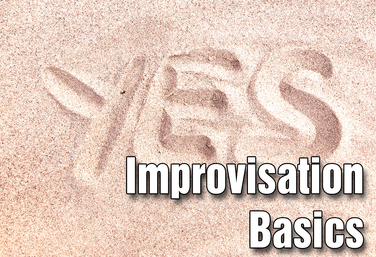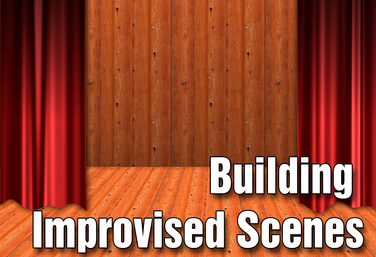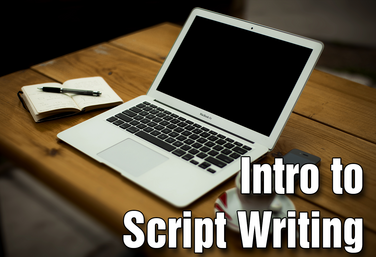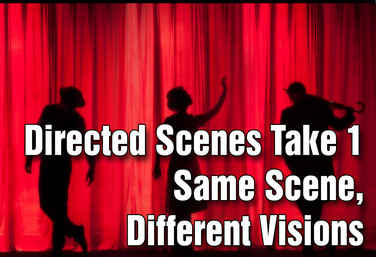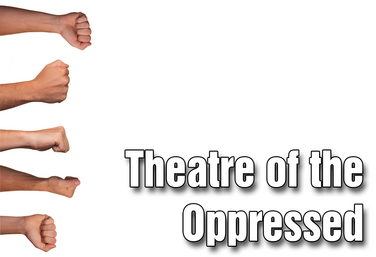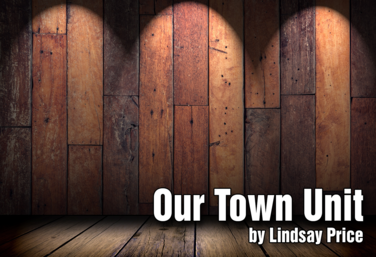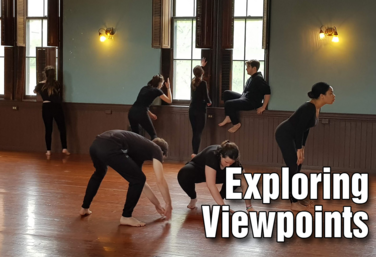Ontario, Canada
Grade 6 - Creating and Presenting
View all Standards for Ontario, Canada
B1.3 plan and shape the direction of the drama or role play by introducing new perspectives and ideas, both in and out of role
Part of the Middle School Curriculum
Unit Two: Improvisation Basics
by Lindsay Johnson
In this unit, students will learn, practice and apply three important rules of improv: accepting and building on offers, quick thinking, and strong offers. For each step, they will work with the Improvisation Rubric by both giving and receiving feedback. Students will also start to practice techniques to improve their vocal clarity. The unit culminates in a performance assessment in which students will play an improv game in front of an audience.
Read More...
Read Less...
Part of the Middle School Curriculum
Unit Three: Building Improvised Scenes
by Lindsay Johnson
Students will understand the basic building blocks of a scene: The Who (characters/ relationship), the Where (setting), and the What (conflict – objectives/tactics). They will learn how to use both verbal and nonverbal (pantomime) clues to communicate these scene details to an audience. They will continue to work on voice clarity, while also learning to open their body to an audience. The unit culminates in a performance assessment in which students work in pairs to improvise a scene.
Read More...
Read Less...
Part of the Middle School Curriculum
Unit Five: Intro to Script Writing
by Lindsay Johnson
In this unit, students learn how to write their own scripts using correct formatting. These scripts will be more detailed than the contentless scenes. Students will learn how to write dialogue that provide information about relationships, conflicting objectives, and setting.
They’ll also learn how to correctly add expression and movement directions into the script itself. The unit will end with a partner script writing assignment which is performed in front of the class.
Read More...
Read Less...
Part of the Middle School Curriculum
Unit Six: Directed Scenes Take 1: Same Scene, Different Visions
by Lindsay Johnson
Students will now start applying the skills they’ve learned thus far in the context of existing, fleshed-out scripts.
They will also have opportunities to shift from actor to director and hone such skills as collaboration, self-confidence, and problem-solving which can be used in many other areas of their lives.
Read More...
Read Less...
Part of the Middle School Curriculum
Unit Eight: Theatre of the Oppressed
by Lindsay Johnson
Students will have a chance to merge their understanding of scene elements with their improvisation skills in this final unit based on Augusto Boal’s Theatre of the Oppressed. Theatre of the Oppressed is a style of theatre specifically created to highlight the injustices of power and oppression in society and to problem-solve ways to bring about change.
Starting with image theatre techniques to identify issues of power and oppression, students will then use forum theatre to create scenarios of oppression taken from their own lives and improvise realistic solutions.
The unit culminates in a performance in which students participate as both actors in a scene they create themselves and spect-actors in scenes created by their peers.
Read More...
Read Less...
Our Town Unit
by Lindsay Price
This is a read, discuss, and apply literature unit. Students will study the play Our Town by Thornton Wilder.
Our Town is often referred to as “nostalgic.” It’s seen as an antiquated look at a moment in time. But this play is called Our Town, not My Town. What’s happening in Grover’s Corners happened in the past, the distant past, in our present, and even in the future. The themes of the play—the ordinary versus universality, the concept of time, the cycle of life, the ignorance of humanity to the eternal—these are just as relevant in the twenty-first century as they were when the play was written.
The purpose of the unit is not to have students recall knowledge about the play. Students will be able to identify, articulate, and dramatize text themes and concepts and compare/contrast these concepts to their own experiences.
Read More...
Read Less...
Exploring Viewpoints
by Erin Carr
Viewpoints is used to create dynamic moments of theatre by simply existing on the stage. However, Viewpoints is more than just an acting technique to understand your own physicality and more than a directing technique to create “ah-ha!” moments on stage. It is first and foremost the philosophy that to create an organic performance, you must see obstacle as opportunity, and that by simply standing in space, your creativity can spark.
This course by Erin Carr will help your students discover fresh impulses that motivate their performance in the moment. We will go through the Viewpoints technique, as created by Mary Overlie, and learn how to tap into kinesthetic awareness as individuals and as an ensemble. Through this style of play, students learn to release their thoughts on what they “should” do, and instead just respond organically to their surroundings and ensemble!
We’re going to break down each of the Viewpoints, there’s lots of visual demonstration, so you can see each Viewpoint in action, and I’m going to provide tips and side coaching examples.
Read More...
Read Less...
View all Standards for Ontario, Canada Standards Master List
© Copyright 2015-2025 Theatrefolk
